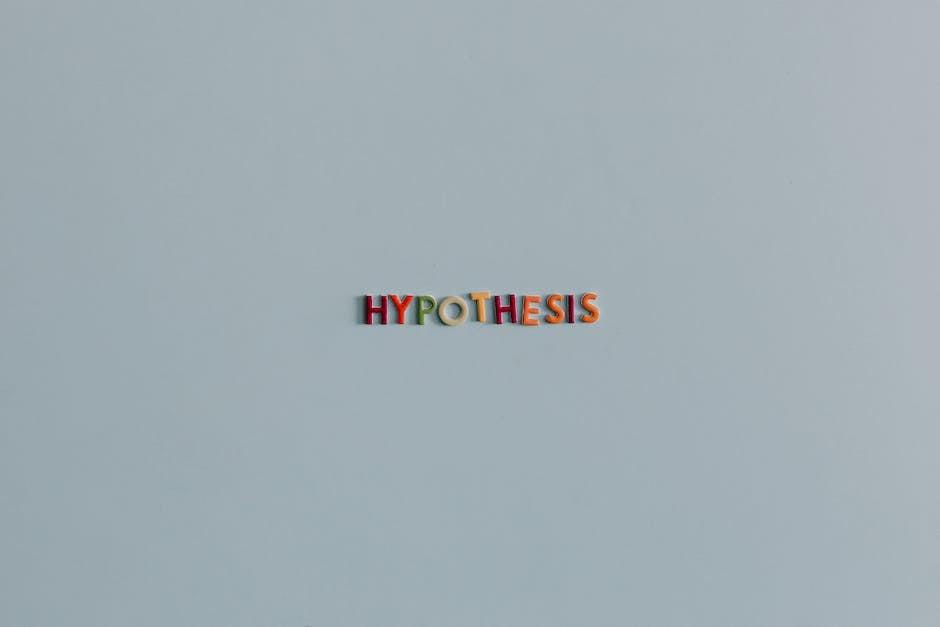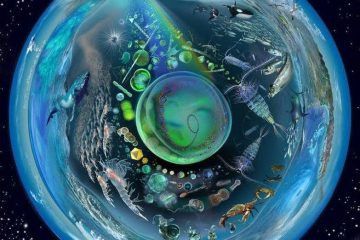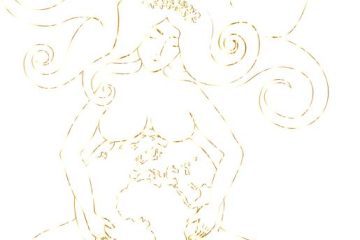In the vast symphony of interconnected life on our planet, the Gaia Hypothesis emerges as a harmonious melody that seeks to unveil the secrets of Earth’s intricate web of existence. As we delve into the notes of this hypothesis, we embark on a journey of discovery and contemplation, exploring the profound relationship between the biosphere and the evolution of our planet. Join us as we unravel the captivating essence of the Gaia Hypothesis and uncover the whispers of wisdom it holds for our understanding of Earth’s living tapestry. Step into the realm of Gaia, where nature’s melody plays on, inviting us to listen, learn, and reflect on the symphony of life itself.
Table of Contents
- Exploring the Intriguing Concept of the Gaia Hypothesis
- Unveiling the Key Principles Behind the Gaia Hypothesis
- Understanding the Impact of Gaia Hypothesis on Environmental Conservation
- Practical Tips for Applying Gaia Hypothesis Principles in Everyday Life
- Q&A
- In Summary

Exploring the Intriguing Concept of the Gaia Hypothesis
The Gaia hypothesis proposes that the Earth is a self-regulating system, much like a living organism, where all living organisms and their inorganic surroundings interact to maintain life’s stability. This fascinating concept suggests that the Earth itself behaves as a single, unified system that has the ability to regulate temperature, atmospheric composition, and other environmental factors to sustain life.
Key points to consider about the Gaia hypothesis include:
- Interconnectedness: It emphasizes the interconnected nature of all living and non-living components on Earth.
- Homeostasis: The Earth works to maintain equilibrium through self-regulation processes.
- Evolutionary Perspective: Viewing Earth as a dynamic system evolving over time.
Unveiling the Key Principles Behind the Gaia Hypothesis
Exploring the essence of interconnectedness within our planet, the Gaia Hypothesis introduces a captivating perspective on Earth as a self-regulating system. **This revolutionary concept, proposed by James Lovelock and Lynn Margulis**, suggests that the biosphere and the physical environment are intricately intertwined, acting as a unified entity.
Central to the Gaia Hypothesis are the following key principles that shed light on the harmony and complexity of Earth’s ecosystems: **dynamic equilibrium**, **feedback mechanisms**, and **homeostasis**. Through these intricate processes, the planet maintains a delicate balance to support life and preserve its natural order. As we delve deeper into the wonders of Gaia, we uncover a profound interconnectedness that emphasizes the importance of sustainability and respect for the intricate web of life.

Understanding the Impact of Gaia Hypothesis on Environmental Conservation
Exploring the Gaia Hypothesis can lead to a profound understanding of how interconnected our planet is, emphasizing that Earth itself behaves as a self-regulating system. This hypothesis challenges traditional views and invites us to perceive Earth as a living organism with various feedback mechanisms to maintain its environmental balance.
- This concept highlights the vital importance of every element on Earth, underscoring the delicate balance that sustains life on our planet.
- Through the lens of the Gaia Hypothesis, we come to realize the intricate web of relationships between living organisms and their environment, emphasizing the need for holistic approaches to environmental conservation.
By acknowledging the Gaia Hypothesis, environmental conservation efforts can transcend individual actions and focus on fostering a harmonious coexistence with nature. Understanding Earth as a dynamic and interconnected system reinforces the notion that every action, big or small, can ripple through the environment, influencing the delicate equilibrium that supports all life forms.

Practical Tips for Applying Gaia Hypothesis Principles in Everyday Life
To truly embody the essence of the Gaia Hypothesis in our daily lives, it’s essential to cultivate a deep connection with nature. Start by spending time outdoors, whether it’s a walk in the woods, a day at the beach, or simply tending to a garden. **Engaging with the natural world can help you appreciate the interconnectedness of all living beings and systems, fostering a sense of harmony and balance.**
Another practical tip is to adopt sustainable practices in your daily routines. This can range from reducing waste and recycling to supporting local farmers and businesses. By making conscious choices that align with the principles of Gaia, such as reducing your carbon footprint and prioritizing eco-friendly products, you contribute to the well-being of the planet as a whole.
| Tip 1 | Spending time in nature |
| Tip 2 | Adopting sustainable practices |
Q&A
Q: What is the Gaia Hypothesis?
A: The Gaia Hypothesis, proposed by scientist James Lovelock in the 1970s, suggests that the Earth functions as a self-regulating system, where living organisms interact with the environment to maintain conditions suitable for life.
Q: How does the Gaia Hypothesis relate to ecology?
A: The Gaia Hypothesis emphasizes the interconnectedness of all living organisms and their impact on the Earth’s ecosystems. It highlights the importance of maintaining a balance between living organisms and their environment for the sustainability of life on our planet.
Q: What evidence supports the Gaia Hypothesis?
A: Evidence supporting the Gaia Hypothesis includes the regulation of atmospheric and oceanic conditions by living organisms, such as the role of plants in regulating oxygen levels and the impact of microorganisms on nutrient cycles.
Q: How can the Gaia Hypothesis influence environmental conservation efforts?
A: The Gaia Hypothesis serves as a reminder of the delicate balance between living organisms and their environment. Understanding this interconnectedness can inspire conservation efforts that aim to protect biodiversity and sustain the Earth’s ecosystems for future generations.
Q: Are there criticisms of the Gaia Hypothesis?
A: Some critics argue that the Gaia Hypothesis anthropomorphizes the Earth and assigns it attributes of a living organism. Others challenge the idea of global self-regulation by questioning the extent to which living organisms can actively control environmental conditions.
Q: What are practical applications of the Gaia Hypothesis in modern society?
A: The Gaia Hypothesis can influence environmental policies by promoting sustainable practices that respect the interconnectedness of living organisms and their habitats. It can also raise awareness about the importance of biodiversity conservation and the need to preserve ecosystems for the well-being of all life on Earth.
In Summary
As we conclude this exploration of the Gaia Hypothesis, we are reminded of the intricate interconnectedness between all living beings and our planet Earth. From the delicate balance of ecosystems to the resilience of the biosphere, the Gaia Hypothesis challenges us to view our world as a dynamic and self-regulating system. By reflecting on these notes, we are encouraged to appreciate the beauty and complexity of nature and to nurture a deeper sense of responsibility towards our shared home. Let us continue to ponder the mysteries and wonders of Gaia, and let its wisdom guide us towards a future of harmony and respect for all life on Earth.



0 Comments